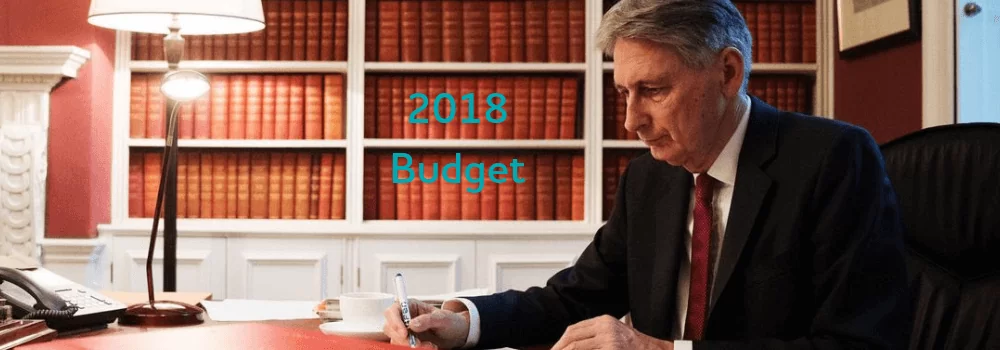On Monday 29th October, Philip Hammond delivered his third budget as chancellor. The emphasis of the budget was that the perseverance of the British people has paid off and that austerity had finally been ended.
However many critics say that the budget was simply putting a ‘plaster’ over the real issues underlying the UK. Many have said that this budget still does not help those that need the most help and also did not offer any reassurance over Brexit as the word was hardly used during Hammond’s announcement.
Personal tax and wages
- The personal allowance threshold, the rate at which people start paying income tax at 20%, to rise from £11,850 to £12,500 in April – a year earlier than planned
- The higher rate income tax threshold, the point at which people start paying tax at 40%, to rise from £46,350 to £50,000 in April
- National Living Wage increasing by 4.9%, from £7.83 to £8.21 an hour, from April 2019
Alcohol, tobacco and fuel
- Beer, cider and spirits duties to be frozen
- Cost of a bottle of wine duty to rise by 8p, in line with inflation, in February
- Tobacco duty will continue to rise by inflation plus 2%
- Fuel duty to be frozen for ninth year in a row
Housing
- All first-time buyers purchasing shared equity homes of up to £500,000 to be exempt from stamp duty
- £500m for the Housing Infrastructure Fund, designed to enable a further 650,000 homes to be built
- New partnerships with housing associations in England to deliver 13,000 homes
- Guarantees of up to £1bn for smaller house-builders
Pensions and welfare
- Work allowances for universal credit to be increased by £1.7bn
- 4 million working families with children to benefit by £630 a year
- An extra £1bn to help welfare claimants transfer to the new consolidated benefit
Environment
- A new tax on plastic packaging which does not contain 30% recyclable material
- £60m for planting trees in England
Infrastructure
- A £30bn package for England’s roads, including repairs to motorways and potholes
- Opening the use of e-passport gates at airports – currently available to people from Europe – to those from the USA, Canada, New Zealand, Australia and Japan
Health and education
- Confirmation of an extra £20.5bn for the NHS over the next five years
- A minimum extra £2bn a year for mental health services
- An extra £700m for councils, for care for the elderly and those with disabilities
- £10m for air ambulances
- A one-off £400m “bonus” to help schools buy “the little extras they need” this year
Business
- New 2% digital services tax on UK revenues of big technology companies, from April 2020. Profitable companies with global sales of more than £500m will be liable
- Private finance initiative (PFI) contracts to be abolished in future
- Contribution of small companies to apprenticeship levy to be reduced from 10% to 5%
- Business rates bill for firms with a rateable value of £51,000 or less to be cut by third over two years. Measure to benefit 90% of independent shops, pubs and restaurants, cutting bills by £8,000
- £900m in business rates relief for small businesses and £650m to rejuvenate High Streets
- New 100% mandatory business rates relief for all lavatories made available for public use
Defence
- An extra £160m for counter-terrorism police
- An extra £1bn for armed forces, for cyber-capabilities and the UK’s new nuclear submarine programme
- £10m for mental health care for veterans, to mark the centenary of the Armistice which brought World War One to an end
Brexit
- Extra £500m for preparations for leaving the EU
- Spring Statement next March could be upgraded to full Budget if needed
If you have any queries about the contents of this article, please contact a member of the HPC team:
T: 0844 800 5932
E: help@highpeformanceconsultancy.com
Twitter: @HPC_HRservices
